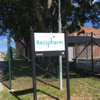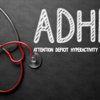Fritextsökning
Artiklar per år
Innehållstyper
-

“Conducting research at universities is becoming more and more like working at a research hotel”
The government wants Swedish research to focus on excellence and innovation, but can the two be combined? Life Science Sweden talks to Anna Falk, a professor at Lund University, about research policy, the constant hunt for funding in academia and what constitutes ‘fine research’.
-

Bayer has cut 1,500 roles – so far
German chemical and pharmaceutical group Bayer cut more than 1,500 roles in the first quarter alone– and most of them were management positions.
-

Läkemedelsföretagens totala pipeline rekordstor – 22 921 läkemedel utvecklas just nu
Bistra ekonomiska tider till trots. Läkemedelsföretagen har aldrig utvecklat så många nya läkemedel som nu.
-

Carl Borrebaeck – professor and serial entrepreneur with a taste for speed
Award-winning cancer researcher, the founder of many listed companies, and constantly in the academic and commercial spotlight for decades. However, Carl Borrebaeck, Professor of Immunotechnology at Lund, is not yet satisfied. “We have a new, potentially super exciting project in the pipeline,” he says.
-

Forskaren in Hagastaden now inagurated
The real estate company Vectura's life science center in Hagastaden, Forskaren, is now inaugurated. The opening was attended by people from the industry, politicians and royalty.
-

Forskaren i Hagastaden nu invigd
Fastighetsföretaget Vecturas life science-center i Hagastaden, Forskaren, är nu invigd. Vid invigningen närvarade både folk från branschen, politiker och kungligheter.
-

Hon är KI-bolaget Neobiomics nya vd
Neobiomics, som utvecklar produkter inom neonatalområdet, har utsett Emma Höglund till ny vd.
-

Astra Zeneca fick Swecares exportpris – ”Fenomenalt stark utveckling”
Ett globalt storbolag och en uppstickare delar på Swecare Export Awards 2024. Årets vinnare: läkemedelsjätten Astra Zeneca och sårvårdsbolaget PU sensor.
-

Nocebo – the evil twin that makes you feel worse
The placebo effect is well known in healthcare, but not so its opposite: nocebo. “The effect is small, but it can have major repercussions,” says Uppsala researcher Charlotte Blease, co-author of a book on the phenomenon.
-

Study: Popular diabetes treatment is not associated with thyroid cancer
Concerns raised about an association between GLP-1 analogues, used to treat diabetes and obesity, and an increased risk of thyroid cancer are not supported by an extensive Scandinavian study.
-

Beta-blockers are often given unnecessarily, a study finds – “This will affect future practice”
Patients who have suffered a minor heart attack do not benefit from beta-blockers, according to a major new study that may change guidelines for cardiac care.
-

Betablockerare ges ofta i onödan enligt stor studie – ”Kommer påverka framtida praxis”
Patienter som drabbats av en mindre hjärtinfarkt har ingen nytta av betablockerare, enligt en ny stor studie som kan komma att ändra riktlinjer för hjärtsjukvård.
-

Recipharm säljer av fem svenska anläggningar
Svenska kontraktstillverkaren Recipharm säljer sina anläggningar i Solna, Strängnäs, Höganäs, Karlskoga samt Uppsala OTC Development till det amerikanska private equity-bolaget Blue Wolf Capital Partners.
-

Ny rapport: Bolagen fortsatt optimistiska om svensk hälsoexport
Trots oro i omvärlden och osäkerhet kring världsekonomin råder optimism bland svenska företag inom hälsoexport, enligt en ny rapport.
-

Lista: Big pharma-bolagen som satsar mest på R&D
Merparten av de stora globala läkemedelsjättarna ökade sina forsknings- och utvecklingsbudgetar i fjol, men ett av dem sticker ut rejält, enligt en ny sammanställning.
-

Nya rekommendationer vid adhd och autism – ”Stort steg i rätt riktning”
De nya nationella riktlinjer för adhd och autism innehåller för första gången rekommendationer om kognitivt stöd – och en ändrad rekommendation om sömntäcken för vuxna.
-

Specific proposals and targets top the universities’ desired priorities
What are the universities’ expectations for the update of the national life science strategy? Life Science Sweden posed the question to representatives from Karolinska Institutet and Sahlgrenska Academy.
-

Barn nära smältverk hade högre halter tungmetaller i kroppen
En studie som studerat barn i Landskrona visar att de barn som bor nära Nordens enda blysmältverket har upp till 24 gånger högre halter av bly, kadmium och kvicksilver i blodet än de som bor längre bort.
-

Calliditas får förlängd marknadsexklusivitet för njurläkemedel
Calliditas Therapeutics njurläkemedel Tarpeyo får nu ytterligare marknadsexklusivitet i sju år i USA av den amerikanska läkemedelsmyndigheten, FDA.
-

“What is important is to create an overview and understanding from different perspectives”
Scientist Jochen Schwenk analyses blood proteins using proteomics to improve our understanding of disease and health. This year, he is moderating the Lab & Diagnostics of the Future event.
-

From Valneva to the CEO position at NorthX – “I saw it as a great opportunity”
A new cell therapy for leukaemia, a vaccine in tablet form against cholera, and a proprietary mRNA line with the potential capacity to supply the entire Nordic region with vaccines during a future pandemic. These are some of the projects underway at NorthX Biologics – under the direction of new CEO Janet Hoogstraate.
-

To build trust, one must be able to say “I don’t know” – whether human or AI
Will AI strengthen or break down trust? It depends on whether we can understand and accept its limitations, and our own, writes Sarah Lidé in a column.
-

KI’s new super machine measures brain activity in real-time – “A very expensive hairdo”
Using brand-new, super-advanced equipment, researchers at Karolinska Institutet can now measure brain activity in real-time, with higher resolution than previously possible. “This opens up fantastic opportunities”, says brain researcher Daniel Lundqvist.
-

Ingrid Lönnstedt: Demystification of the power of a scientific study
”You surely do realize that even the smallest changes in study assumptions may influence the estimated sample size needed. And how is it even possible to guess the magnitude of the treatment effect before performing the study?” writes Ingrid Lönnstedt in a column.